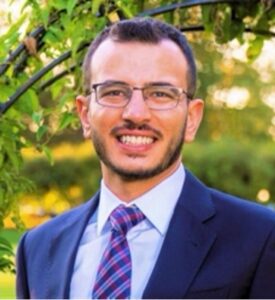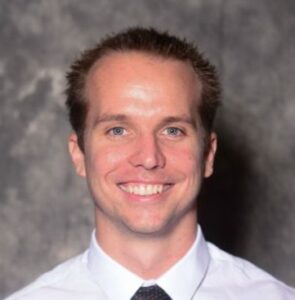
Mohamed Mehana
Los Alamos National Laboratory

Eric Guiltinan
Los Alamos National Laboratory
Seminar Information:
Date: August 16, 2023
Time: 1:00 pm – 2:00 pm MT
Location: Held via Webex. A no-cost registration is required to attend.
Register here or contact [email protected] for assistance.
The I-WEST seminar series hosts thought leaders on a spectrum of topics tied to transitioning the Intermountain West to carbon neutrality, including technologies, policy, workforce, and environmental justice.
Seminar summary
As the Intermountain West pivots toward a cleaner and more sustainable energy future, hydrogen has emerged as a candidate for meeting the region’s energy needs. Hydrogen has potential to enable low-carbon pathways for transportation, industry, and power generation, but we need better ways to store it so that it’s readily available to support our energy sectors. Surface storage options cannot provide the capacity that is required to balance the energy grid, so scientists are looking elsewhere. This seminar will take us underground to explore options for storing hydrogen in geologic formations, such as depleted gas fields, saline aquifers, and salt caverns, all of which can be found in the Intermountain West. If you’re wondering how scientists can safely select geologic storage sites, tune in to learn about OPERATE_H2, a new software tool developed at Los Alamos National Laboratory for optimizing storage operations and conducing risk assessments.
As part of this seminar, we will also get a glimpse into an assessment that was conducted specifically for the Intermountain West region to better understand the resource needs to produce fossil-based hydrogen, how it can be done cleanly, and what the economic impacts might be. Learn how scientists are applying place-based, holistic, and integrated approaches to developing a more sustainable and efficient energy future.
Speakers
Mohamed Mehana is a scientist in the Energy and Natural Resource Security Group at Los Alamos National Laboratory. His research primarily focuses on multiscale modeling of subsurface phenomena and science-informed machine learning. Throughout his career, he has been deeply involved in a diverse array of fundamental and applied research projects. Notably he has contributed significantly to the technoeconomic analyses for the Intermountain West region, the National Risk Assessment Partnership (NRAP) for geological storage of carbon dioxide, and the Science-informed Machine Learning for Accelerating Real-Time Decisions in Subsurface Applications (SMART) Initiative. Mohamed holds a master’s degree and Ph.D. in petroleum engineering from the University of Oklahoma, where he was acknowledged with the Outstanding Master Student and Distinguished Ph.D. Achievement awards. He boasts over 38 peer-reviewed articles and was recently honored with the Regional Reservoir Description and Dynamics Award from the Society of Petroleum Engineers (SPE).
Eric Guiltinan is a staff scientist at Los Alamos National Laboratory where he researches hydrogen and nuclear waste storage from the pore-scale to the reservoir-scale. At the pore-scale his work is focused on flow through fractured rock which pairs experiments, pore-scale simulation, and machine learning. At the reservoir scale his work is primarily focused on coupled thermo-hydro-mechanical-chemical simulations. Eric has five years of experience working in the environmental consulting field where oversaw the cleanup of contaminated industrial sites, installed water supply wells, developed groundwater models, dredged harbors, and other various projects. He received his M.S. from California State University Long Beach where he developed a novel technique for using sinusoidal hydraulic tests to measure the connectivity of fractured rock reservoirs in the field. He received his Ph.D. in Geology from the University of Texas at Austin in 2018. His thesis paired high pressure high temperature laboratory experiments and with simulations to study the multiphase flow properties of sealing caprocks for CO2 geological storage.


